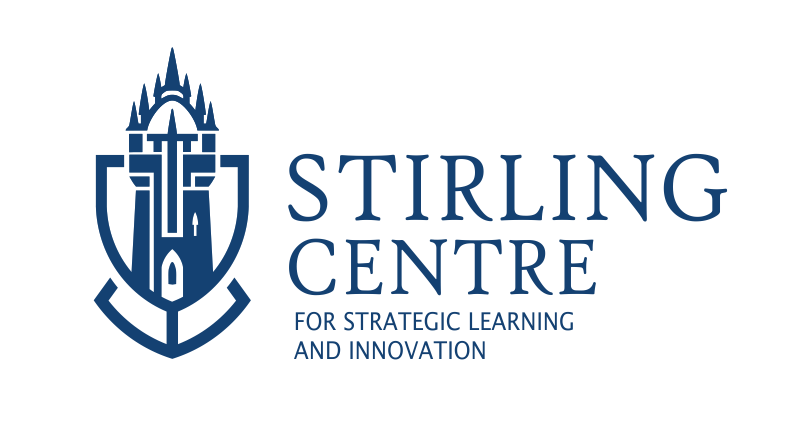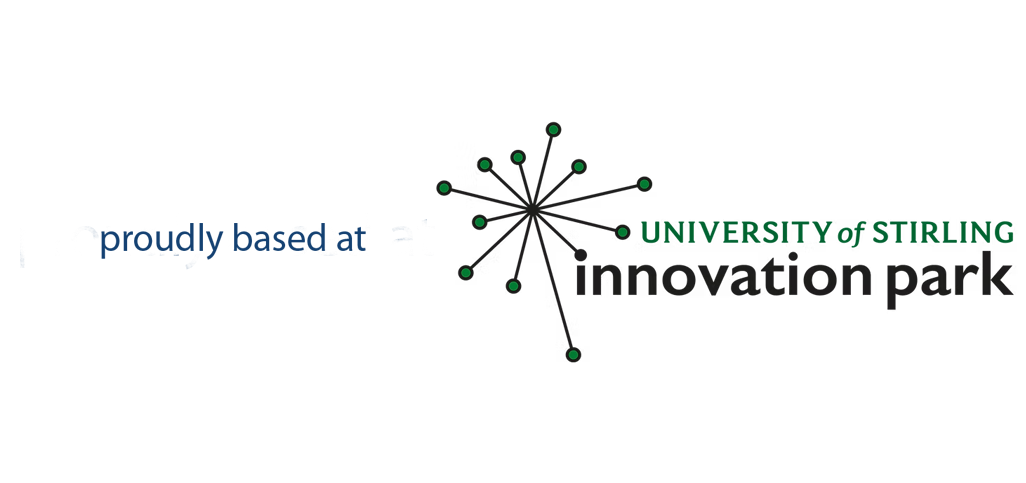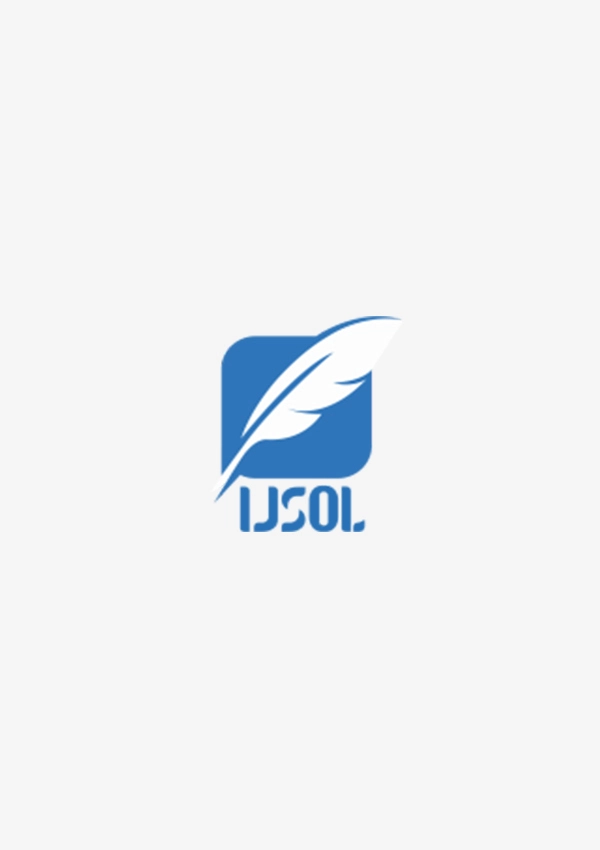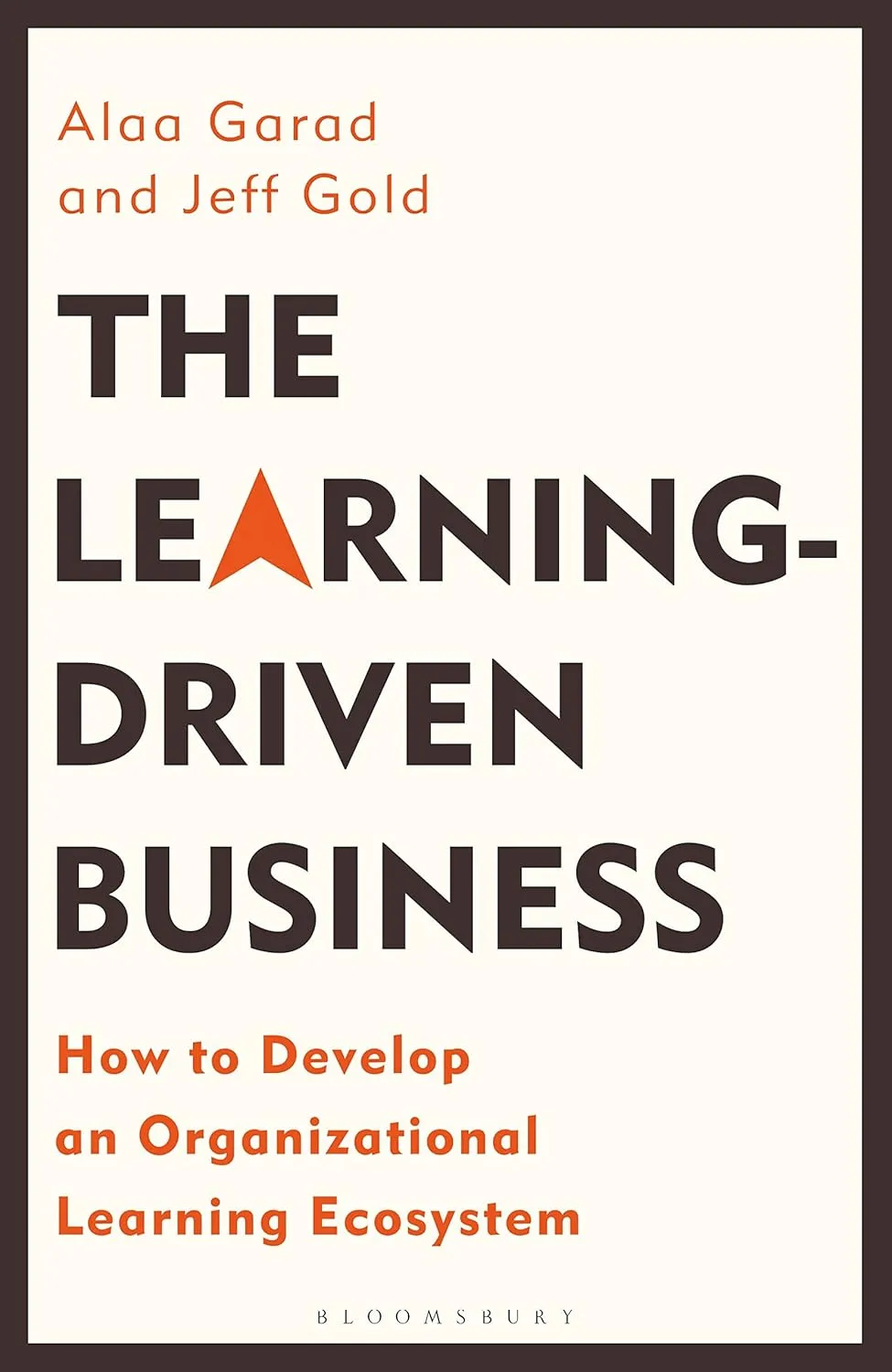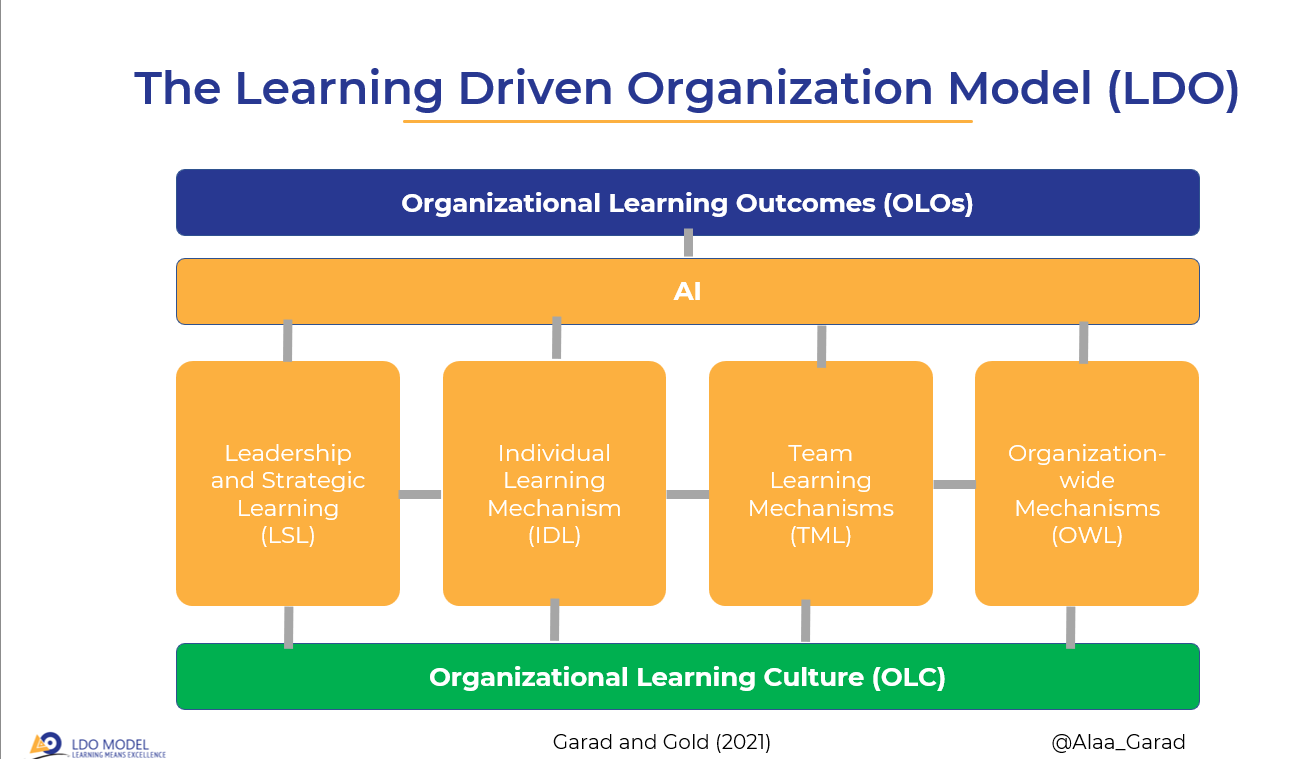Research and Publications
International Journal of Strategy and Organisational Learning (IJSOL)
The International Journal of Strategic and Organisational Learning (IJSOL) is a peer-reviewed, interdisciplinary journal committed to sharing authentic knowledge and practices across disciplines and professions. In collaboration with the Science Publishing House, Stirling Centre is proud to be the co-publisher of IJSOL, the only journal that links Strategy to Organisational Learning.
The journal supports stakeholders in understanding learning, advancing strategic learning, and building learning-driven organisations.
Organisational learning (OL) is how organisations acquire and apply knowledge to adapt and improve. It encompasses:
-
- Knowledge creation through experience and problem-solving
- Knowledge retention by embedding insights in culture and systems
- Knowledge transfer across teams and departments
OL theory emphasises fostering a culture of continuous learning, collaboration, and adaptability. It enhances competitiveness and responsiveness by promoting different levels of learning:
-
- Single-loop learning: improving efficiency
- Double-loop learning: questioning assumptions
- Triple-loop learning: transforming the organisation
Learning organisations proactively create opportunities to learn, rather than relying on chance. Garad & Gold (2018) define OL as:
“The process of modifying organisational behaviour through various methods and practices, drawing lessons from inside and outside the organisation to improve performance and transform into a learning-driven organisation.”
Strategic Learning (SL) links learning with long-term organisational goals. It involves purposeful learning to drive transformation and sustainable success. Core elements include:
-
- Gaining insights into customers, markets, and competitors through analysis
- Making strategy creation and execution a continuous learning cycle
- Engaging the entire organisation in strategy and learning
- Prioritising evaluation to learn from successes and failures
- Developing skills aligned with strategic priorities
Professor Willie Pietersen describes Strategic Learning as a dynamic process for creating and implementing breakthrough strategies, enabling ongoing adaptation rather than one-time change.
IJSOL aims to deepen the connection between strategy and learning, positioning Strategic Learning as a key enabler of innovation and performance. The journal will be available in both print and online formats, published by The Science Publishing House (USA) – a publisher of leading peer-reviewed academic journals: www.scipubhouse.com.
For publishing at IJSOL, Reviewers or Downloading Articles, please visit scipubhouse.com
The Learning Driven Business Book
Six times, one of the top 100 best-selling books on Amazon
Published in May 2021, The Learning‑Driven Business offers a practical yet rigorously researched framework to help organisations embed learning as a strategic advantage. The authors argue that proactive organisational learning is vital for resilience, competitiveness, and adaptive capacity in volatile, AI-driven, and automation-heavy environments.
Theoretical Foundations & Model
Garad and Gold develop an interdisciplinary model—a Learning‑Driven Organisation (LDO) ecosystem—grounded in original academic research and real-world cases. The LDO comprises three interlocking subsystems that facilitate learning at:
-
- Individual Level
- Team Level
- Organisation‑Wide
It serves eight stakeholder groups, offers over 46 organisational benefits, and integrates insights from artefacts, internal documents, manuals and communications
Strategic Learning in Action
Strategic learning, according to Garad & Gold, is learning aligned with long-term strategic goals. It involves:
-
- Systematic analysis of markets, customers, and competition
- Learning is integrated into continual strategy cycles
- Broad engagement beyond top leadership
- Deliberate experimentation, evaluation of successes and failures
- Developing workforce skills tied to strategic priorities
Strategic learning differs from ad-hoc upskilling—it’s deliberate, outcome-oriented and rooted in organisational purpose.
Applications & Value
Combining academic theory and practical case studies, the book offers frameworks and tools for executives and practitioners to diagnose learning culture gaps, design learning interventions, and foster ecosystems that support:
-
- Continuous innovation
- Agility during disruption
- Sustained employee engagement
- Organisational resilience and excellence
Reviewers praise its balance of theory and application, calling it an essential guide for adapting to modern organisational complexities
Takeaway
The Learning‑Driven Business positions organisational learning not just as HR or training, but as a culture-shaping, strategic capability. By providing a tested model and actionable guidance across multiple levels of learning, it enables organisations to embed learning deeply, enabling adaptation, resilience, and growth in an unpredictable world.
Order the book from Amazon:
https://www.amazon.co.uk/Learning-Driven-Business-Organizational-Learning-Ecosystem/dp/1472986679
Order a signed copy by Alaa Garad – write to jude@stirlingcentre.co.uk
LDO Model
Download the Model Here
The LDO Model: An Integrative Ecosystem for Organizational Learning
The LDO (Learning-Driven Organization) model is a comprehensive ecosystem designed to embed learning as a strategic, operational, and cultural driver across all levels of an organization. It integrates theory and practice to help organizations systematically transform into learning-driven entities.
Core Components of the LDO Ecosystem
The model consists of three interdependent subsystems:
- Organizational Learning Culture (OLC) – The Why
- Defines the underlying values, attitudes, and behaviours that foster learning.
- Acts like the “soil” or “riverbed” enabling the flow of learning.
- Indicators include:
- Leaders modelling and nurturing a culture of learning.
- Trust, transparency, teamwork, empowerment, and continuous improvement.
- Organization-wide engagement and openness to feedback.
- Organizational Learning Mechanisms (OLM) – The How
- Represents the structures, tools, and processes that support learning.
- Includes cognitive (e.g., shared language), structural (e.g., teamwork), and procedural (e.g., reviews) mechanisms.
- Practices include:
- Strategic alignment of learning.
- Budgeting and resourcing for learning.
- Coaching, mentoring, peer learning, and technology-enabled learning.
- Capturing and sharing lessons learned.
- Stakeholder feedback systems and external learning activities.
- Organizational Learning Results (OLR) – The What
- Measures the impact and outcomes of learning efforts.
- Helps in validating the effectiveness of learning strategies and mechanisms.
- Focus areas:
- Use of learning to inform strategic and operational decisions.
- Learning leading to innovation and performance improvements.
- Organizational ability to predict and shape its future.
Philosophy and Definition
The authors define learning in this context as:
“The process of modifying organizational behaviour through the use of different processes, practices, methods and activities in drawing lessons learned from within and outside the organization for the purpose of systematically improving performance and transforming into a learning-driven organization.”
Key Contributions
- Holistic integration of learning culture, mechanisms, and outcomes.
- Moves beyond traditional views by incorporating technology, digitalisation, and machine learning as future learning agents.
- Stresses the role of leaders, not only in enabling but embodying a learning mindset.
- Encourages learning beyond organizational boundaries to involve broader stakeholders, including communities and society.
The LDO model is a strategic and actionable framework designed for organizations seeking long-term adaptability, innovation, and excellence through embedded learning. It encourages moving from isolated learning initiatives to a fully integrated learning ecosystem.
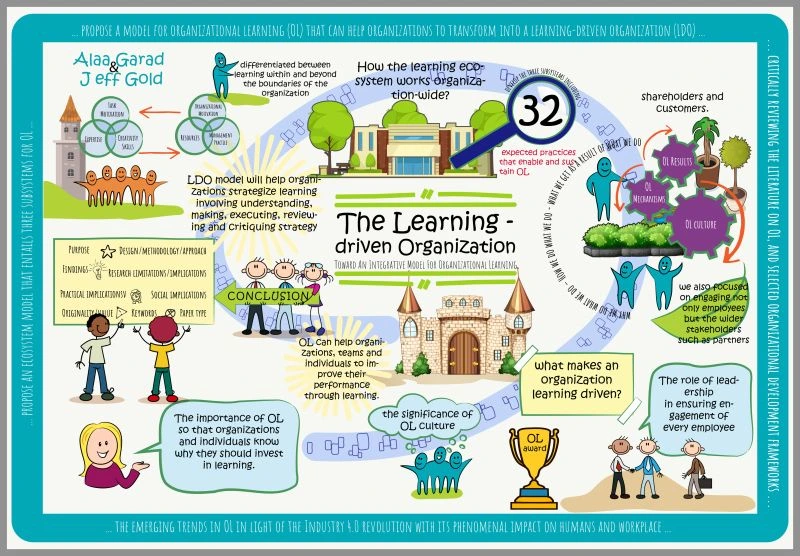
Resources
Here you can download resources and articles on the centre’s main topics of interest
| Learning | |
|---|---|
| Applications of Organisational Learning in the Healthcare Sector | Download |
| The State of Organisational Learning post-COVID | Download |
| How Spirituality and Spiritual Intelligence Fuel Organizational Learning | Download |
| Collaborative Learning Ecosystems: Enhancing Communities of Practice in Digital Spaces | Download |
| Innovation | |
|---|---|
| OECD Innovation Playbook | Download |
| Case Study Library by OECD | Download |
| Why cross industry collaboration is the future of innovation in 2025 | Download |
| From Generative AI to Innovative AI: An Evolutionary Roadmap | Download |
| Enhancing the Innovation Ecosystem: Overcoming Challenges to Implementation of Information Driven Technologies | Download |
Submit a resource
Please send the link if you have a resource you would like us to post here.
Publish with us
If you are interested in writing an article for IJSOL or the centre blog, please send us your article.
